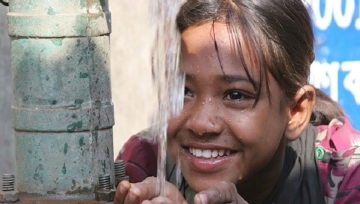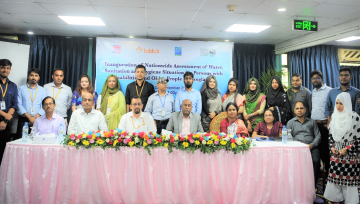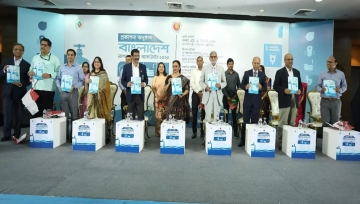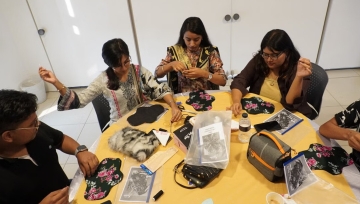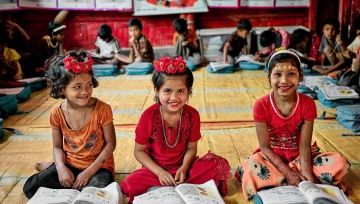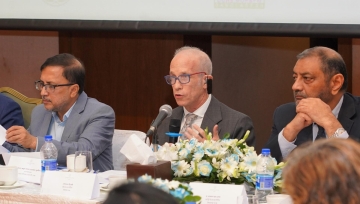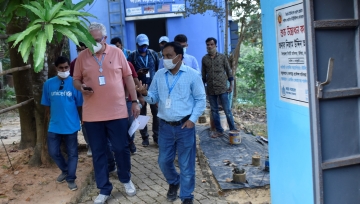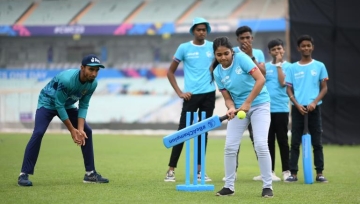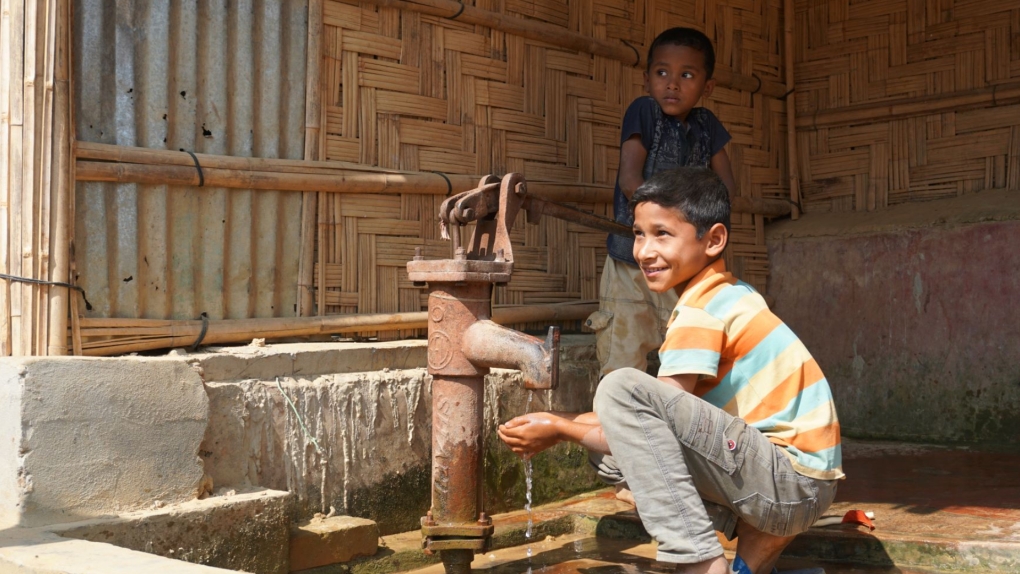
Promoting Health, Well-being on World Water Day

World Water Days theme for this year is Accelerating Change, highlighting the urgent need to take action to address the global water crisis
The global water crisis is a multifaceted issue that requires a comprehensive response from governments, businesses and civil society. Despite significant progress, billions of people still lack access to safe drinking water and basic sanitation facilities.
World Water Day 2023's theme is "Accelerating Change," highlighting the urgent need to take action to address the global water crisis. This theme acknowledges that the current pace of progress in ensuring access to safe and clean water for all is too slow, and it is necessary to accelerate efforts to achieve Sustainable Development Goal (SDG) 6, which is to ensure access to water and sanitation for all by 2030, reads a press release issued Tuesday.
According to the Joint Monitoring Programme (JMP) 2021 for Water, Sanitation and Hygiene (WASH), achieving this target will require a quadrupling of current rates of progress in providing safely managed water, sanitation and basic hygiene services. In short, to ensure safe drinking water and proper sanitation facilities for everyone, action, ambition and innovation are the needs of the hour.
In the era of rapid urbanization, development initiatives by governments and non-government organizations have become mostly urban- and peri-urban-centric. However, most communities that live in rural settings have been on the periphery as far as sustainable development actions are concerned, and Bangladesh is no different, according to the release.
Recognizing WASH as an essential component of sustainable development, SAJIDA Foundation has been working to deliver 360 holistic and integrated water, sanitation, and hygiene services through multiple innovative projects in partnership with donors and the government, it added.
The organization's approach pivots around the major touchpoints of a family, primarily building its interventions around the movements, activities and characteristics of a typical community (a) at home and in the community at large (b) at school (c) at health centre/community clinic (d) in a climate-vulnerable area.
Community-managed rural piped water supply
In Bangladesh, according to JMP estimates for 2020, 29.8 million people one in five do not have water accessible on-premises, and 3.79 million people still do not have clean water close to home.
SAJIDA Foundation has adopted a community-centric holistic approach by introducing a community-managed rural piped water supply, which is scientifically proven to be more efficient than sporadic numbers of household tube wells.
It also uses renewable solar power as a value-addition strategy, providing a light source during power cuts.
Climate-resilient communal sanitation blocks
Around 75.4 million people in Bangladesh one in two do not have a decent toilet of their own.
As a mitigation measure, SAJIDA Foundation has constructed climate-resilient communal sanitation blocks, which serve as water reservoirs for a community-managed water supply system, reducing the stress on land requirements, critical for densely populated countries like Bangladesh.
Inclusivity and gender-friendliness are integral features of these sanitation blocks. Along with toilet facilities, they also provide private bathing facilities, ensuring the privacy and dignity of women. They are also equipped with renewable solar power sources, making them robust and user-friendly facilities for children and women at night.
Additionally, the blocks facilitate the establishment of catchment areas for rainwater harvesting in climate-vulnerable regions, which maximizes the efficient use of rainwater during the monsoon season.
WASH in health
In rural areas, community clinics serve as primary healthcare providers, catering to the health needs of locals.
However, most of these clinics lack basic water, sanitation and hygiene facilities, such as running water and user-friendly toilets, which are essential for both patients and service providers. The WASH improvements implemented by SAJIDA provide access to safe drinking water, handwashing facilities and user-friendly toilets, resulting in patients and service providers benefitting from an improved healthcare experience, with proper hygiene standards and a safe environment, said the press release.
WASH in schools
In rural and climate-vulnerable areas, girls often miss school due to a lack of gender-friendly toilets and menstrual hygiene management (MHM) facilities. On average, girl students remain absent from school for 2.5 days per month during their menstruation cycle, even during exams.
SAJIDA addresses this issue by constructing dedicated WASH blocks for girls in schools, complete with running water, safe water sources and MHM chambers with disposal mechanisms, the press release said. The WASH block also provides sitting arrangements for resting and ablution facilities while maintaining privacy.
Community awareness, knowledge management
SAJIDA Foundation said it recognizes that sustainable development initiatives require both behaviour change and awareness programs, supported by facilities to exercise acquired knowledge on improved WASH behaviour.
The organization has made awareness programs an integral part of its WASH initiatives, covering personal hygiene, environmental hygiene and menstrual hygiene. By improving behaviour in key areas related to hygiene and providing adequate facilities, it said it aims to create sustainable development initiatives that lead to long-lasting positive impacts in communities.
One of the key drivers behind SAJIDA Foundation's work is implementing programs that boost awareness and change mindsets, particularly for those who have migrated from rural to urban settings to work. This includes promoting correct handwashing techniques, water safety, toilet etiquette, waste management and menstrual hygiene. Behavioural changes must go hand-in-hand with attitudinal shifts of the private sector, which must invest more in WASH programs to ensure SDG 6 is met.
The theme for this year's World Water Day emphasizes the importance of collaboration and partnership between the community, public and private sectors to implement multifaceted initiatives and policies to achieve sustainable, equitable and accessible water resources for all.
SAJIDA Foundation's efforts provide an excellent example of a public-private-community partnership, where the local government provides the requisite approvals, but the community members themselves provide the land, said the release.
The organization's multi-pronged, 360 approach seeks to address the WASH needs of the marginalized and vulnerable at each touchpoint, foster multi-sectoral collaboration, and improve the effectiveness of hygiene behaviour change programs, thereby contributing to the achievement of WASH Justice for All, it added.
Source: Dhaka Tribune

